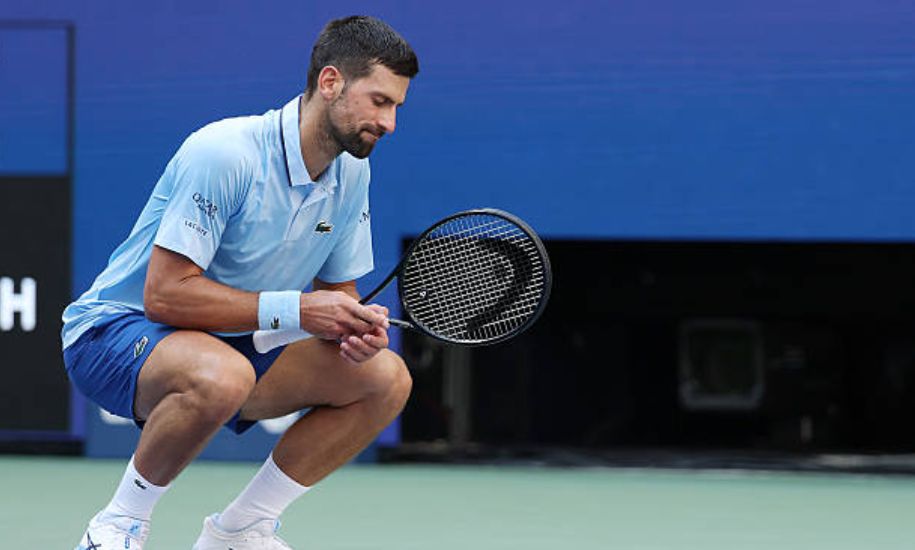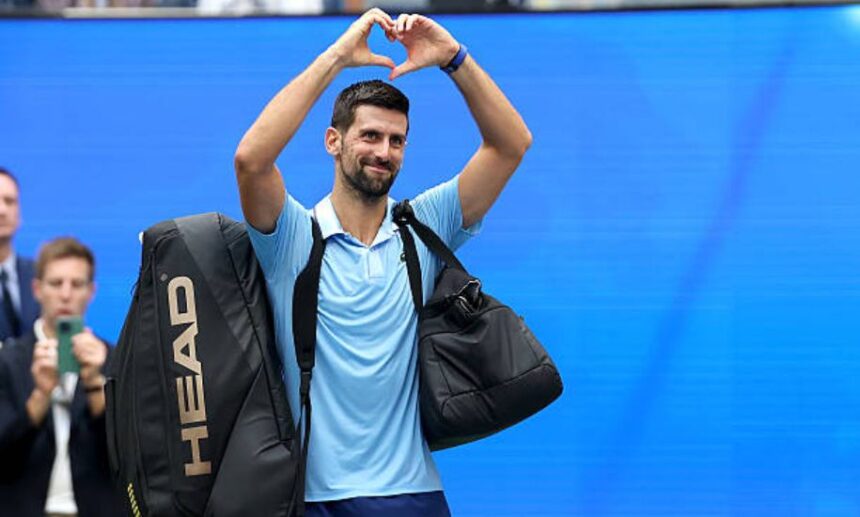When discussing greatness in modern tennis, one name inevitably dominates the conversation: Novak Djokovic. The Serbian champion has rewritten record books, amassed 24 Grand Slam titles, and proven himself one of the most resilient athletes of all time. Yet, the story of Djokovic extends beyond titles and trophies. It involves setbacks, health challenges, spiritual beliefs, and questions about his unmatched mental toughness.
This article explores recent Novak Djokovic news, while answering key questions: Why did Novak Djokovic quit? What is Djokovic’s autoimmune disease? What religion does Djokovic belong to? and Who is the most mentally strong tennis player?
Why Did Novak Djokovic Quit?
At the 2025 Australian Open, Djokovic shocked fans by retiring from his semifinal against Alexander Zverev. Early in the match, the world No. 1 struggled with visible discomfort. Later, his team confirmed he had sustained a muscle tear in his left leg.
A History of Playing Through Pain
This wasn’t the first time Djokovic had soldiered through physical issues. Over the years, he has coped with elbow surgeries, shoulder stiffness, and abdominal strains, often continuing to compete at the highest level. What made this particular retirement remarkable was his reputation for never giving in unless physically unable to stand.
Fallout from the Decision
The retirement not only ended his chance of adding another Australian Open crown but also raised questions about how much longer the 38-year-old could sustain his dominance. Some fans applauded his decision to protect his health, while others speculated whether age was finally catching up to the Serbian star.
Symbolism in the Quit Decision
Djokovic’s withdrawal was more than a medical note—it was a reminder that even the toughest athletes are human. His decision symbolized wisdom: the willingness to preserve his body for the bigger battles ahead, such as Wimbledon and the U.S. Open.
What Is Djokovic’s Autoimmune Disease?
For years, whispers have circulated about whether Djokovic suffers from an autoimmune condition. Here’s what we know:
Gluten Intolerance and Lifestyle Changes
Djokovic has openly discussed his gluten sensitivity. After struggling with fatigue and inconsistent performances in his early career, he underwent dietary testing. The results led him to adopt a strict gluten-free diet, along with minimizing dairy and processed sugar.
The transformation was immediate. Djokovic claimed his endurance improved, recovery times shortened, and mental clarity sharpened. Many sports scientists highlight his diet as one of the most influential lifestyle changes in professional tennis history.
The “Celiac Disease” Assumption
Some outlets mistakenly suggest Djokovic has celiac disease—an autoimmune condition triggered by gluten. However, Djokovic himself has never confirmed such a diagnosis. Instead, he frames his health journey around intolerance and optimal nutrition rather than a formal medical disorder.
Holistic Health Approach
Beyond diet, Djokovic embraces yoga, meditation, breathing exercises, and even unconventional wellness practices. Critics occasionally mock these methods, but his longevity and results speak volumes. Whether or not he suffers from an autoimmune condition, his holistic approach to body and mind management has kept him at the pinnacle of tennis for two decades.

What Religion Does Djokovic Belong To?
Religion has always played a central role in Djokovic’s identity.
Serbian Orthodox Christianity
Djokovic is a devout Serbian Orthodox Christian. He has spoken publicly about his faith, often attributing his resilience and success to spiritual guidance. The Serbian Orthodox Church recognized him with the Order of St. Sava (First Class), honoring his contributions to both sport and society.
Faith as a Source of Strength
Djokovic regularly prays before matches, attends church services, and credits faith for grounding him in moments of pressure. During difficult times—such as injuries or controversial disqualifications—he has leaned on spiritual teachings to maintain composure.
A Broader Perspective
While Djokovic is firmly rooted in Orthodox Christianity, he is also known for exploring other spiritual traditions, including elements of Buddhism and mindfulness. His openness to multiple philosophies reflects his broader quest for balance, inner peace, and resilience.
Who Is the Most Mentally Strong Tennis Player?
The debate about mental strength in tennis has raged for years. Many consider Djokovic the prime example of a mentally unshakable athlete.
Djokovic’s Mental Fortitude
Djokovic has turned countless matches around from seemingly impossible positions. Whether saving match points against Roger Federer at Wimbledon 2019 or clawing back from two sets down in Grand Slam finals, his psychological resilience stands unmatched. He often credits:
-
Visualization techniques before matches.
-
Mindfulness practices for emotional regulation.
-
Breathing exercises to manage stress.
Analysts argue that Djokovic’s ability to silence hostile crowds, endure marathon matches, and stay calm under pressure proves his mental strength is as significant as his physical talent.
Nadal and Federer as Counterpoints
Still, Djokovic is not the only candidate. Rafael Nadal is celebrated for his relentless fighting spirit, even when injured. Nadal’s refusal to quit—even when clearly in pain—has earned him admiration as one of the toughest competitors in sport.
Roger Federer, meanwhile, was known for his composure and elegance under pressure. While not as vocal about mindfulness, his calmness in high-stakes moments set a standard for mental strength.
The Verdict
Most commentators agree: Djokovic stands at the top of mental toughness in modern tennis, with Nadal and Federer close behind. His consistency in turning pressure into performance has redefined what it means to be mentally strong in sports.
Djokovic in 2025: What Lies Ahead?
At 38, Djokovic is at a crossroads. His retirement in Melbourne raised doubts, but his determination suggests he’s far from finished. If history is any guide, he’ll return stronger, perhaps with another Grand Slam title to silence doubters.
Beyond tennis, Djokovic’s story continues to inspire. His blend of physical discipline, dietary evolution, spiritual faith, and unshakable mental strength positions him as more than an athlete—he is a case study in human resilience.
Conclusion
The latest Novak Djokovic news reveals an athlete still battling age, injury, and speculation, yet standing tall through faith and determination. His retirement from the Australian Open showed vulnerability, while his health practices highlight discipline. His Orthodox Christian faith roots him in tradition, and his mental strength cements his legacy as one of the greatest sportsmen ever.
As the conversation about Djokovic evolves, one truth remains: his career is not just about tennis—it’s about the power of belief, discipline, and resilience. For deeper cultural reflections and ongoing sports coverage, you can always check out Tumblr Magazine, where stories like Djokovic’s transcend the court.
For more information visit Tumblr Magazine .







